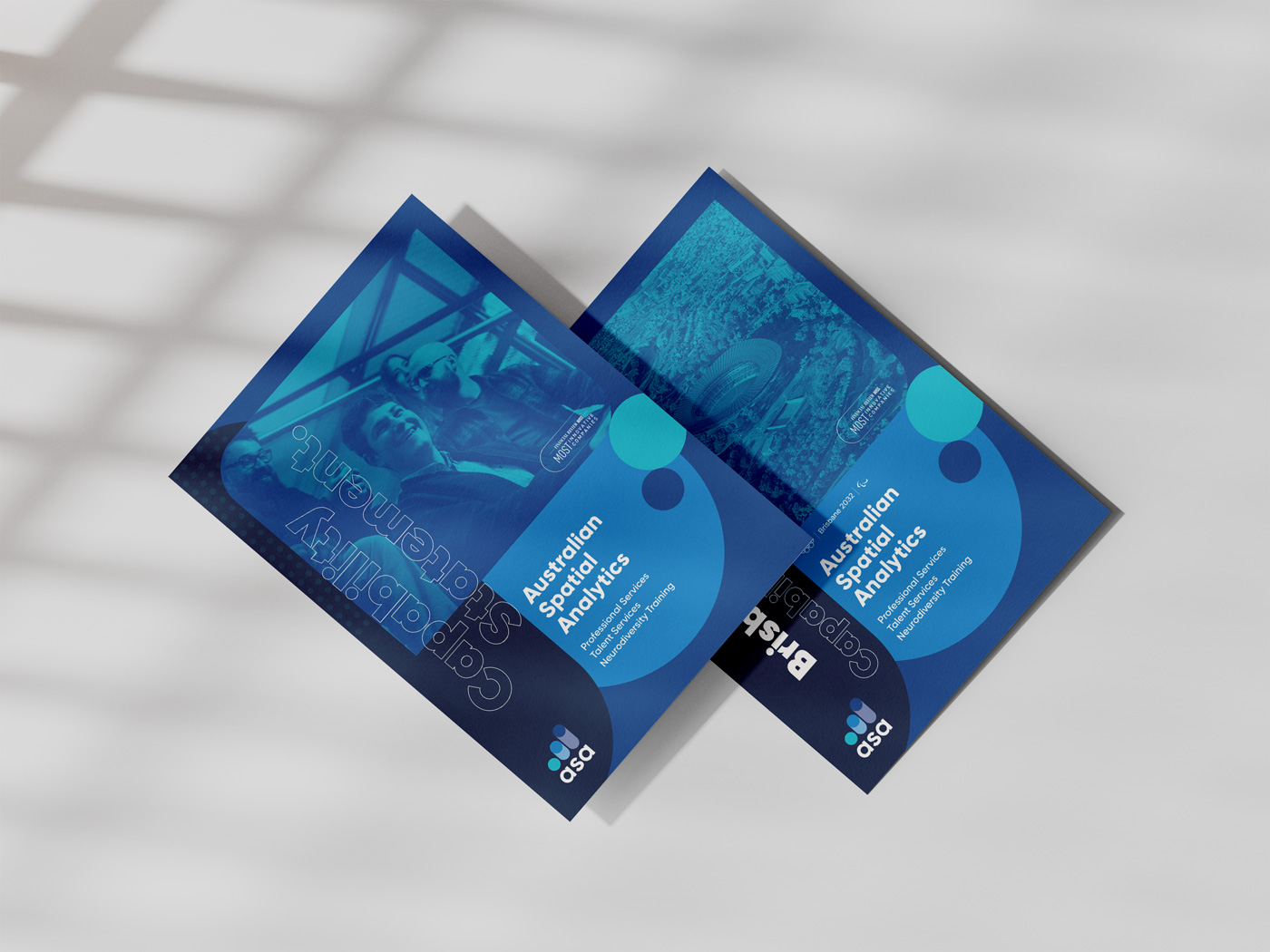by Stephen de Groot, Data Analyst
Australian Spatial Analytics (ASA) will be at the 2024 Brisbane Pride Fair Day, thanks to a generous grant from Brisbane Pride! Our attendance showcases the careers ASA offers for neurodivergent LGBTQIA+ people in the geospatial and digital engineering professions. The head of our LGBTQIA+ Working Group, Chaos Procter (they/them), and LGBTQIA+-identifying geospatial analyst Ashur-Eli Perandis (he/him) will be there to answer any questions you might have regarding how ASA could be the perfect employer for you. They are more than happy to tell you about their experiences working for ASA as neurodivergent LGBTQIA+ employees, what kinds of projects they have worked on, how you will be supported within the ASA workplace and any other questions you may have.
There is a well-established link between neurodivergence and queer identities. Autistic people are significantly less likely to identify as heterosexual and far more likely to show diverse gender identities than the general population, with a University of Cambridge study reporting that neurodivergent people are eight times more likely to identify as LGBTQIA+. Many theories have been proposed to explain this difference, from prenatal hormone exposure, which is present in both LGBTQIA+ people and autistic people, to autistic people being less likely to notice and abide by gender roles and expectations. However, there is no strong evidence to support any of those theories.
Regardless of the reason, the link between LGBTQIA+ and neurodivergence deserves to be accepted as part of the diverse fabric that makes up human nature and one of the many reasons why human beings are such beautiful creatures. Neurodivergent LGBTQIA+ people don’t need to be ‘fixed’ or ‘changed’ but deserve to be respected, understood, and accepted for who they are.
"Society is gradually accepting that all of our brains work in different ways—that there is no one ‘correct’ type of brain! A parallel to this is our gradual acceptance of the many identities that fall under the LGBTQIA+ umbrella." John Anderson (LGBTQIA+ representative at The Brain Charity)
Inclusive workplace environments promote a culture of respect and collaboration. Organisations that are viewed as inclusive are far more likely to retain and attract talent. Hence, employers need to create safe and inclusive workplaces for their LGBTQIA+ employees beyond just what is required under the law. This not only enhances the well-being of LGBTQIA+ employees, who are at risk of facing discrimination or exclusion, but makes them far more likely to be engaged and productive within their organisation. Just being allowed to be your authentic self at work has a significant impact on your well-being!
The effects of having a workplace culture that values diversity also impact the external opinions of that organisation, enhancing the brand image for those who require their services. For example, ASA is one of Australia’s largest and fastest-growing work-integrated social enterprises, attracting business from over 40 clients, including all levels of government and industry. ASA currently employs over 100 neurodivergent data analysts, with approximately 20% of the workforce openly identifying as LGBTQIA+ (compared to the general population of 3-4%).
ASA has a great reputation for recruiting neurodivergent people (including autistic Australians like myself, who face a 34% unemployment rate), which also includes those identifying as LGBTQIA+. They have provided people like me with on-the-job training and experience working on real-world projects from big players within their respective industries. Most importantly, ASA’s ultimate aim is to assist its employees in gaining meaningful employment with other organisations.
ASA is also aware of the unique challenges that neurodivergent people face as employees and has built their culture around accepting differences in others. ASA is also a great employer for LGBTQIA+ neurodivergent people, with a rapidly growing LGBTQIA+ Working Group comprising over 25 members at last count. Important LGBTQIA+ calendar dates are recognised and celebrated, with guest speakers frequently seen at ASA offices on important dates. ASA also has People Success Officers to assist LGBTQIA+ employees with accessing assistance, both internally and externally, and most importantly, a working culture that accepts LGBTQIA+ people.
Find out more about how ASA is an LGBTQIA+-friendly workplace at this flyer.




